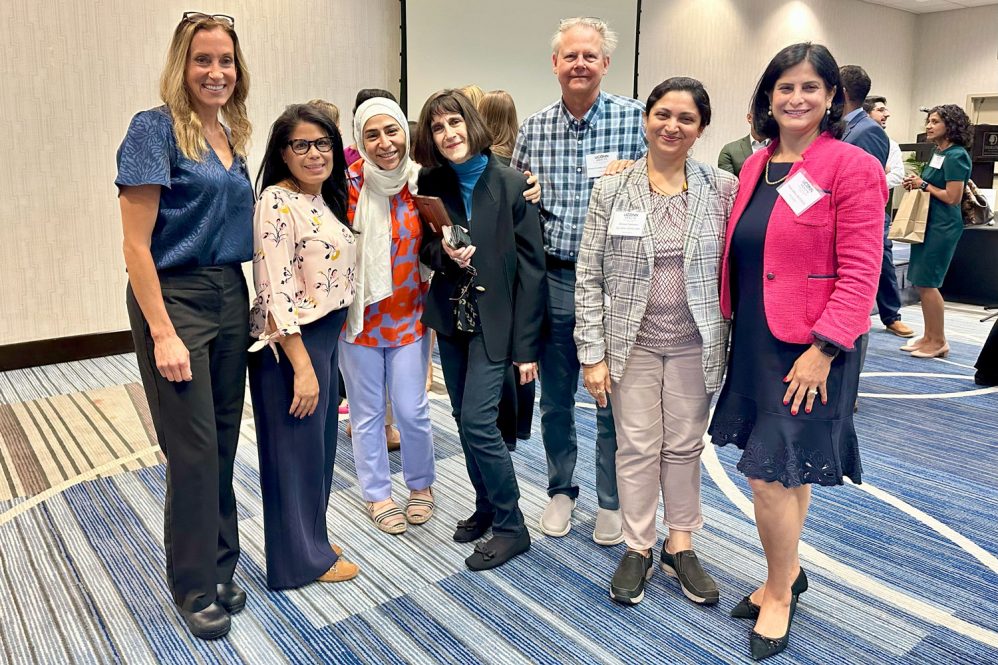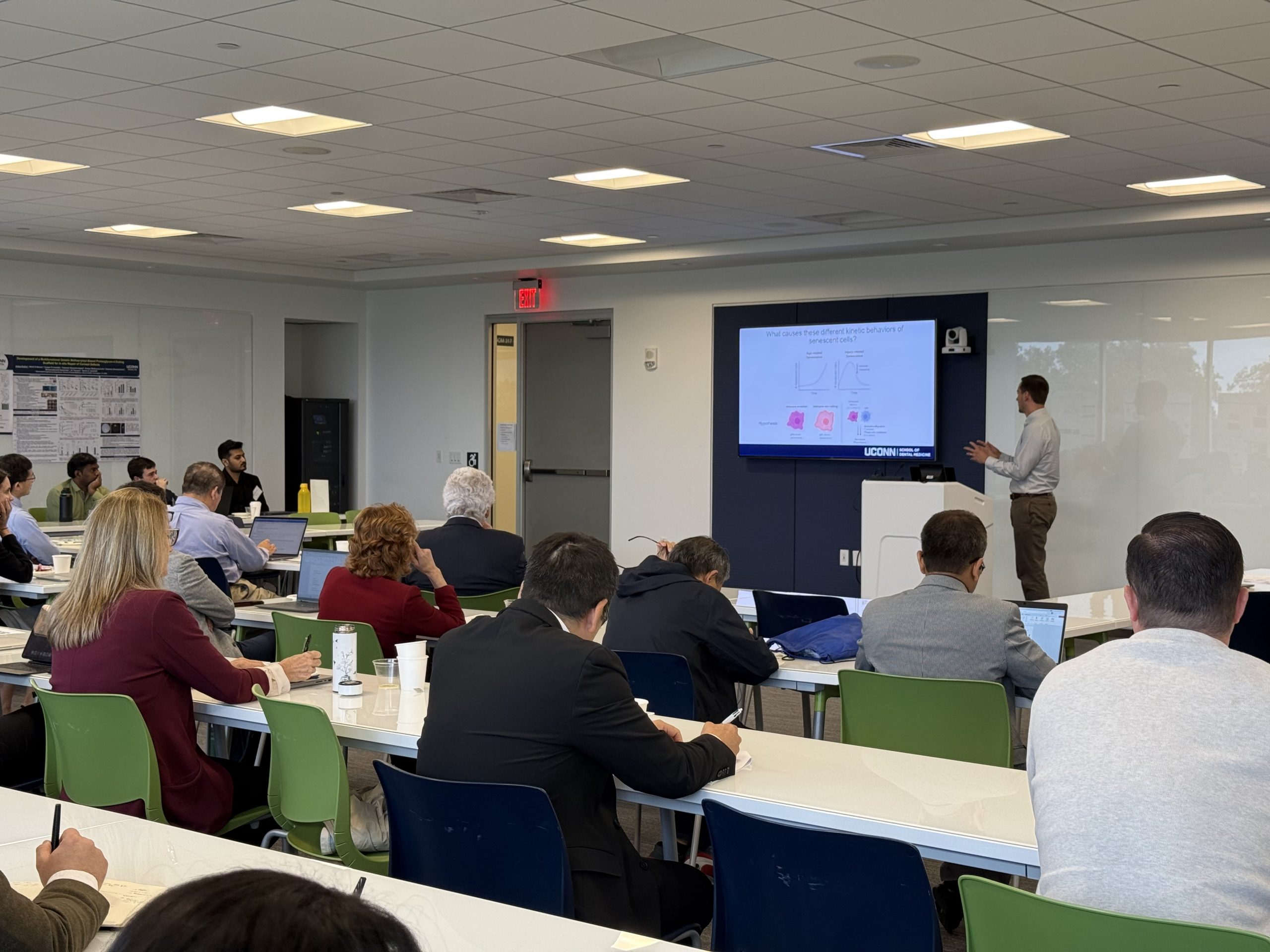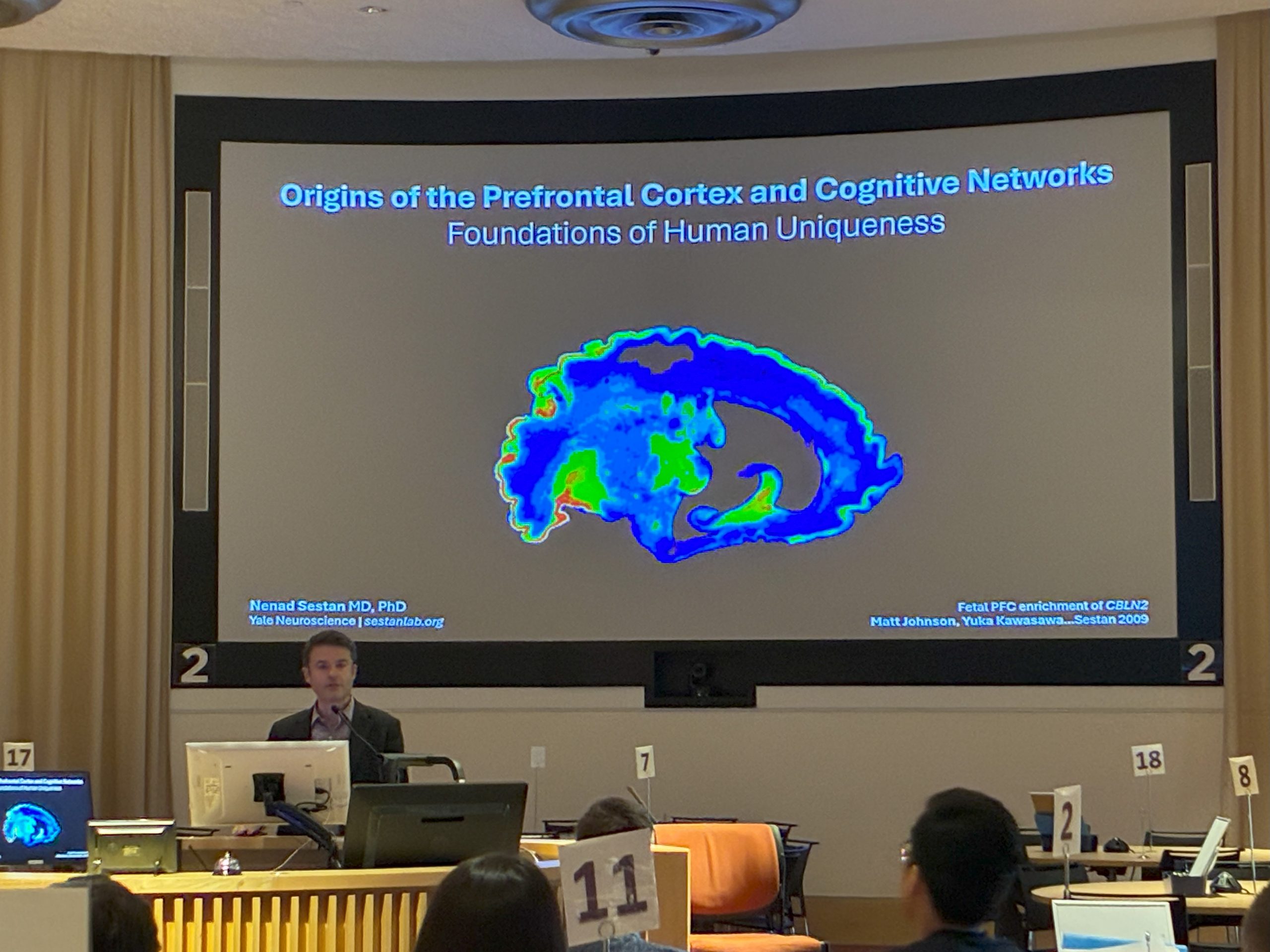UConn Health hosted a very successful 26th annual Diabetes and Endocrine CME Symposium Sept. 18 in Bristol, bringing together leading endocrinologists and health care professionals from both local and regional centers.
Organized by Dr. Pooja Luthra, professor of medicine, and Amanda Pasler, administrative program coordinator, the event served as a dynamic platform for the exchange of knowledge, clinical experiences, and the latest advancements in the management of diabetes and endocrine disorders.
The symposium featured a series of expert-led presentations and interactive case studies covering a wide range of topics, including emerging adjunctive therapies in patients with type 1 diabetes, new practice guidelines for management of primary hyperaldosteronism, and management sequence of patients with osteoporosis.
The speakers included Dr. Faryal Mirza, professor of medicine, as well as Dr. Patricia Peters from Yale New Haven Health Dr. Anand Vaidya from Brigham and Women’s Health in Boston. Attendees had the opportunity to engage directly with specialists, fostering rich discussions that bridged theory and real-world practice.
In addition, Dr. Beatriz Tendler, associate professor of medicine in UConn Health’s Division of Endocrinology, received the annual award of recognition for her outstanding dedication to patient care, leadership in advancing endocrine practice, and commitment to mentoring the next generation of physicians.
What set this symposium apart was the strong spirit of collaboration between local and regional endocrinologists. This partnership plays a crucial role in enhancing the standard of care across our health care network. By sharing insights, challenges, and best practices, clinicians are better equipped to deliver personalized, evidence-based treatment to patients throughout the region.
In an era of rapidly evolving medical knowledge, such collaboration ensures that no institution or provider works in isolation. Instead, we move forward together learning from one another, supporting each other’s efforts, and ultimately improving outcomes for the patients we serve.
We extend our sincere thanks to all speakers, participants, and partners who contributed to the success of the symposium. Their dedication to advancing endocrine care continues to drive innovation, inspire learning, and strengthen our collective impact.
—Pooja Luthra, MD, FACE



